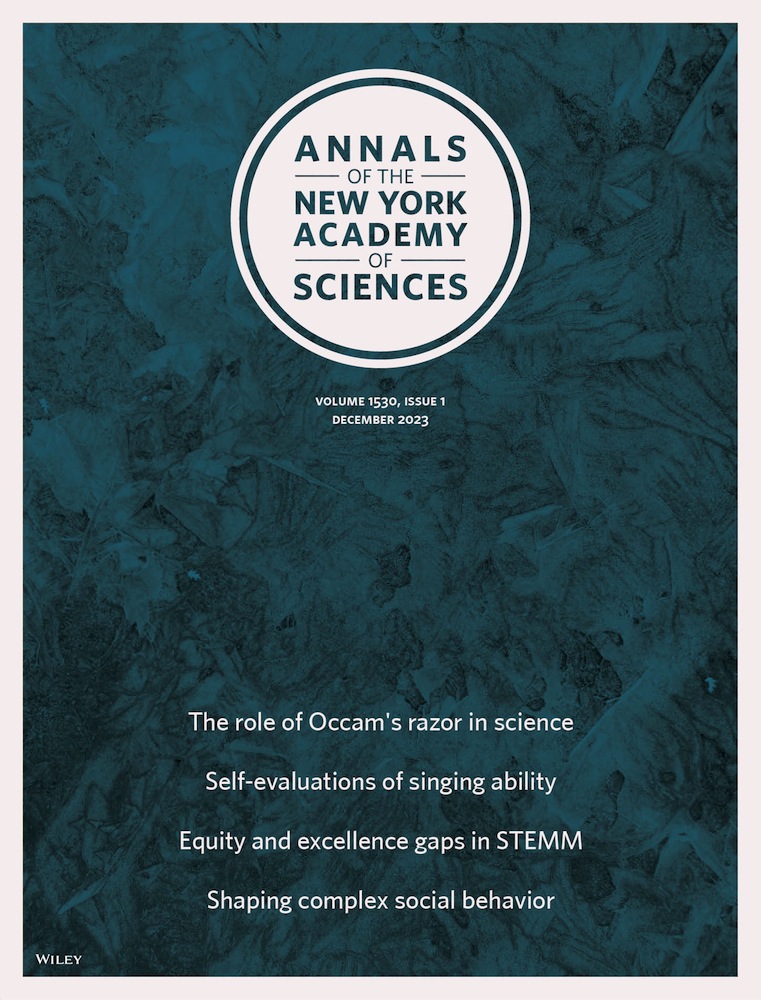学生与STEM首字母缩略词的联系及其对价值信念和STEM选择的影响
IF 4.8
3区 综合性期刊
Q1 MULTIDISCIPLINARY SCIENCES
引用次数: 0
摘要
近几十年来,有许多活动吸引学生参加STEM学习项目和工作。然而,关于目标受众是否熟悉STEM首字母缩略词,他们与之相关的具体STEM学科领域以及这些关联的影响的研究很少。我们调查了学生对STEM首字母缩略词的熟悉程度,以及他们将STEM首字母缩略词与不同STEM学科领域的联系(由他们的价值信念介导)是否影响了他们对STEM学习计划和活动的学术选修意愿以及他们在学校对STEM课程概况的选择。在一个八年级学生的样本中(n = 1163; 611名女孩;13.7岁),72%的人报告熟悉STEM首字母缩略词。学生们将数学与STEM这个首字母缩略词联系得最紧密,其次是物理、计算机科学、化学、生物学和工程学。学生与STEM首字母缩略词相关的学科领域影响了他们对STEM的学术选修意图和他们在学校的STEM选择。这些关系是由学生的价值信念介导的,并且在与STEM首字母缩略词相关的学科领域和性别方面有所不同。我们的研究结果对定制STEM活动的影响进行了讨论,以确保其有效性和更加多样化和包容性的STEM社区。本文章由计算机程序翻译,如有差异,请以英文原文为准。
Students’ associations with the STEM acronym and their impact on value beliefs and STEM choices
In recent decades, there have been many campaigns to attract students to STEM study programs and jobs. However, there is little research on whether the target audiences are familiar with the STEM acronym, which specific STEM subject areas they associate with it, and the impact of these associations. We investigated students’ familiarity with the STEM acronym and whether their associations of the STEM acronym with different STEM subject areas—mediated by their value beliefs—affected their academic elective intentions for STEM study programs and activities and their STEM choices of curriculum profiles at school. In a sample of eighth‐grade students (n = 1163; 611 girls; 13.7 years), 72% reported familiarity with the STEM acronym. Students associated mathematics most strongly with the STEM acronym, followed by physics, computer science, chemistry, biology, and engineering. The subject areas students associate with the STEM acronym affected their academic elective intentions for STEM and their STEM choices at school. These relations were mediated by students’ value beliefs and differed for the subject areas associated with the STEM acronym and by gender. The consequences of our findings for tailoring STEM campaigns to ensure their effectiveness and a more diverse and inclusive STEM community are discussed.
求助全文
通过发布文献求助,成功后即可免费获取论文全文。
去求助
来源期刊

Annals of the New York Academy of Sciences
综合性期刊-综合性期刊
CiteScore
11.00
自引率
1.90%
发文量
193
审稿时长
2-4 weeks
期刊介绍:
Published on behalf of the New York Academy of Sciences, Annals of the New York Academy of Sciences provides multidisciplinary perspectives on research of current scientific interest with far-reaching implications for the wider scientific community and society at large. Each special issue assembles the best thinking of key contributors to a field of investigation at a time when emerging developments offer the promise of new insight. Individually themed, Annals special issues stimulate new ways to think about science by providing a neutral forum for discourse—within and across many institutions and fields.
 求助内容:
求助内容: 应助结果提醒方式:
应助结果提醒方式:


